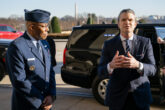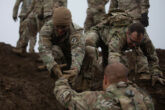September 30, 2020
What Leaders Can Do Now To Strengthen U.S. Special Operations Forces
After nearly two decades of intense counter-terror operations, the 2018 National Defense Strategy prescribed a shift for special operations forces (SOF) to “long-term, strategic competition.” This “back to the future” approach expands roles for special operations units, but more than a strategic realignment is needed to preserve the nation’s SOF for the unrelenting demands in the competitive space. Improving performance of SOF teams themselves, not just enacting new policies and concepts, is necessary to fully leverage the attributes and potential of SOF in future missions. To build stronger teams, leaders at all levels must identify and enforce priorities, focus on health and resilience, and ruthlessly manage operations tempo to provide time for recovery and professional development.
Improving performance of SOF teams themselves, not just enacting new policies and concepts, is necessary to fully leverage the attributes and potential of SOF in future missions.
Earlier this year, U.S. Special Operations Command (SOCOM) conducted a comprehensive review on ethics and professionalism, igniting a fierce debate on how to fix the culture problems in special operations units. The discussion has rightly centered on civilian oversight, the role of the Assistant Secretary of Defense for Special Operations and Low Intensity Conflict, and remedial actions for SOCOM itself. However, top-level policy changes are only part of revitalizing SOF. There must be equal attention given to strengthening special operations teams, defined here as units of action below the threshold of O-5 command.
Read the full article in Task and Purpose.
More from CNAS
-
Hegseth Brings the Culture War to Combat
The fundamental challenge of military leadership lies in creating cohesive teams that can work together in an environment of mortal risk and, when called upon to do so, use le...
By Dr. Jason Dempsey
-
Hegseth Says Trump Boosted Military Recruiting. It’s Been Improving for over a Year
Defense Secretary Pete Hegseth says military recruiting has shot up since the Trump administration's return. In fact, it's been improving for at least a year, with big jumps i...
By Taren Sylvester
-
Pete Hegseth’s Views About Women and Military Standards
In recent weeks, Hegseth walked back comments made while promoting his book, where he said women did not belong in ground combat units. Without citing specific examples, he co...
By Katherine L. Kuzminski
-
What Trump’s Pick for Secretary of Defense Could Mean for Inclusivity in the Military
Dr. Kyleanne Hunter, Adjunct Senior Fellow with the Military, Veterans, and Society Program at CNAS joins to discuss the Trump administration nominee for secretary of defense....
By Dr. Kyleanne Hunter




